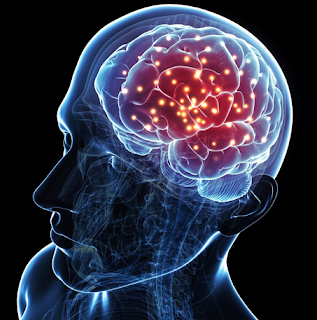Brain abscess disease
Brain abscesses are a disease, in which a sac contains pus in a particular part of the brain. This disease generally occurs after a person suffers from an infection in his body and germs cause the infection to spread to the brain. In addition to infections, accidents resulting in a head impact also potentially cause brain abscesses.
Brain abscesses are one of the emergency conditions in the nervous field that should be handled optimally because it can threaten the life of the sufferer.
Brain Abscess Diagnosis
The determination of a diagnosis of brain abscesses is done by medical interviews. In patients with brain abscesses, there is generally a history of certain diseases that have the potential to spread to the brain or disease that causes a decrease in the immune system, such as HIV. In physical examination, some symptoms lead to abnormalities in the brain, such as weakness of one side of the body or speech disorder.
To ensure the brain abscess, a series of supporting examinations will be conducted, such as:
- Blood screening
Infection of the body can be known from the results of blood tests
- Computed Tomography (CT) brain scans
A CT brain scan is an imaging procedure using X-rays to find out details inside the brain.
- Magnetic Resonance Imaging (MRI)
The purpose of the MRI is actually the same as the brain CT-scan, but it does not use X-rays but instead electromagnetic waves.
- CT-guided aspiration
Using a CT-scan guide, pus intake in the abscess is done for the examination of the type of germs under the microscope.
Causes of brain abscess
Various conditions can be behind the occurrence of brain abscesses, such as:
- Infections around the head such as sinusitis, ear infections or oral cavity that spread to the brain
- Infections in other parts of the body such as infections in the lungs that then spread to the head and brain cavity
- Accidents involving head collisions and causes of skull bone cracking. Germs and fungi cause brain abscesses can enter through these cracks.
Symptoms of brain abscess
Symptoms may arise immediately after the formation of a brain abscess or pause long enough. Commonly experienced symptoms include:
- Severe head pain that does not subsides with ordinary anti-pain
- Decreased consciousness
- The weakness of one side of the body
- Talk is unclear or miss
- High fever > 38oC
- Seizures
- Nausea and vomiting
- Stiff neck
- Double Vision
The symptoms vary from one sufferer to another, depending on the part of the brain where the abscess is located. If the abscess is in the speech center in the brain, then the speech disorder is the main symptom.
Brain Abscess Treatment
Treatment of brain abscesses should be done immediately. A brain abscess that is not immediately resolved is potentially causing impaired blood redirection due to pressure by the mass of abscesses. Also, large-size brain abscesses are at risk of rupture and result in a difficult spread of pus.
To treat brain abscesses, various modalities of treatment are performed such as:
- Medicines: antibiotic or antifungal
- Pus evacuation operations, either through small holes made in the skull or large surgical shells.
Complications of brain abscess
When not handled optimally, brain abscesses can lead to various complications, such as:
- Permanent brain Damage
- Recurrent seizures and epilepsy
- Meningitis or inflammation of the brain
- Repeated abscesses
Prevention of brain abscess
Brain abscesses can be prevented by avoiding various risk factors. In someone with HIV, for example, taking antiretroviral medication (ARV) regularly and avoiding disease transmission can be one way to prevent brain abscesses.
In the case of head trauma, surgery of fractures or fractures of the skull can help to close the gaps that occur and potentially enter these bacteria and fungi.
